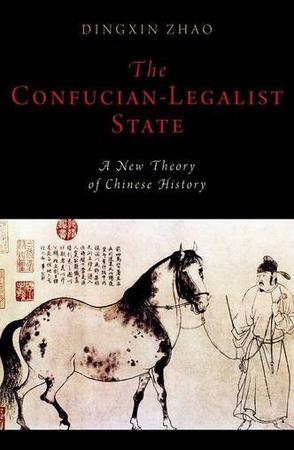
章节目录
Preface A Disclaimer Maps Part I. Empirical and Theoretical Considerations Introduction Chapter 1: A Theory of Historical Change Part II. The Historical Background of the Eastern Zhou Dynasty Chapter 2: The Western Zhou (ca. 1045-771 BCE) Order and Its Decline Chapter 3: The Historical Setting of Eastern Zhou, an Age of War Part III. War-driven Dynamism in Eastern Zhou Chapter 4: The Age of Hegemons (770-546 BCE) Chapter 5: The Age of Transition (545-420 BCE) Chapter 6: In the Age of Total War (419-221 BCE): (1) Philosophies and Philosophers Chapter 7: In the Age of Total War: (2) Absolutism Prevailing Chapter 8: In the Age of Total War: (3) Qin and the Drive toward Unification Chapter 9: Western Han and the Advent of the Confucian-Legalist State Part IV. The Confucian-Legalist State and Patterns of Chinese History Chapter 10: Pre-Song Challenges to the Confucian-Legalist Political Framework and Song Responses Chapter 11: Relations between Nomads and Settled Chinese in History Chapter 12: Neo-Confucianism and the Advent of a <"Confucian Society>" Chapter 13: Market Economy under the Confucian-Legalist State Concluding Remarks References
内容简介
In the The Confucian-Legalist State, Dingxin Zhao offers a radically new analysis of Chinese imperial history from the eleventh century BCE to the fall of the Qing dynasty. This study first uncovers the factors that explain how, and why, China developed into a bureaucratic empire under the Qin dynasty in 221 BCE. It then examines the political system that crystallized during the Western Han dynasty, a system that drew on China's philosophical traditions of Confucianism and Legalism. Despite great changes in China's demography, religion, technology, and socioeconomic structures, this Confucian-Legalist political system survived for over two millennia. Yet, it was precisely because of the system's resilience that China, for better or worse, did not develop industrial capitalism as Western Europe did, notwithstanding China's economic prosperity and technological sophistication beginning with the Northern Song dynasty. In examining the nature of this political system, Zhao offers a new way of viewing Chinese history, one that emphasizes the importance of structural forces and social mechanisms in shaping historical dynamics. As a work of historical sociology, The Confucian-Legalist State aims to show how the patterns of Chinese history were not shaped by any single force, but instead by meaningful activities of social actors which were greatly constrained by, and at the same time reproduced and modified, the constellations of political, economic, military, and ideological forces. This book thus offers a startling new understanding of long-term patterns of Chinese history, one that should trigger debates for years to come among historians, political scientists, and sociologists.
下载说明
1、The Confucian-Legalist State是作者Dingxin Zhao创作的原创作品,下载链接均为网友上传的网盘链接!
2、相识电子书提供优质免费的txt、pdf等下载链接,所有电子书均为完整版!
